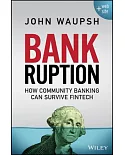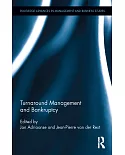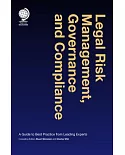Arnold Ziegel formed Mountain Mentors Associates after his retirement from a corporate banking career of more than 30 years at Citibank. The lessons learned from his experience in dealing with
entrepreneurs, multinational corporations, highly leveraged companies, financial institutions, and structured finance, led to the development and delivery of numerous senior level credit risk
training programs for major global financial institutions from 2002 through the present. This book was conceived and written as a result of the development of these courses and his experience
as a corporate banker. It illustrates the fundamental issues of credit and credit analysis in a manner that tries to take away its mystery. The overriding theme of this book is that when an
investor extends credit of any type, the goal is “to get your money back”, and with a return that is commensurate with the risk. The goal of credit analysis is not to make “yes or no” decisions
about the extension of credit, but to identify the degree of risk associated with a particular obligor or a particular credit instrument. This is consistent with modern banking industry
portfolio management and the rating systems of credit agencies. Once the “riskiness” of an obligor or credit instrument is established, it can be priced or structured to match the risk demands
or investment criteria of the entity that is extending the credit. A simple quote from Mr. J. P. Morgan is used often in this text - “Lending is not based primarily on money or property. No
sir, the first thing is character”. This statement represents one of the conflicts in modern credit analysis – that of models for decision making versus traditional credit analysis. The 2008
financial crisis was rooted in the mortgage backed securities business. Sophisticated models were used by investors, banks, and rating agencies to judge the credit worthiness of billions (and
maybe trillions) of dollars worth of residential mortgage loans that were packaged into securities and distributed to investors. The models indicated that these securities would have very low
losses. Of course, huge losses were incurred. Mr. Morgan had a good point. In this case is was both property and character. The properties that were the collateral for many of the mortgages had
much less value than was anticipated. The valuation of the collateral was naïve and flawed. Many assumptions were made that the value of homes would rise without pause. Many mortgage loans were
made that were at or even above the appraised value of a residence.But character was a huge, perhaps larger, factor behind these losses. Many of the residential mortgage loans were made to
individuals who knew that they did not have the income to make the required payments on the mortgages. Many of the mortgage brokers and lenders who made these loans also knew that many of the
borrowers were not properly qualified. And, many of the bankers who securitized these loans also may have doubted the credit quality of some of the underlying mortgages. If bankers and rating
agencies understood the extent of the fraud and lax standards in the fundamental loans backing the mortgage securities, or were willing to acknowledge it, the fiasco would not have occurred.





















